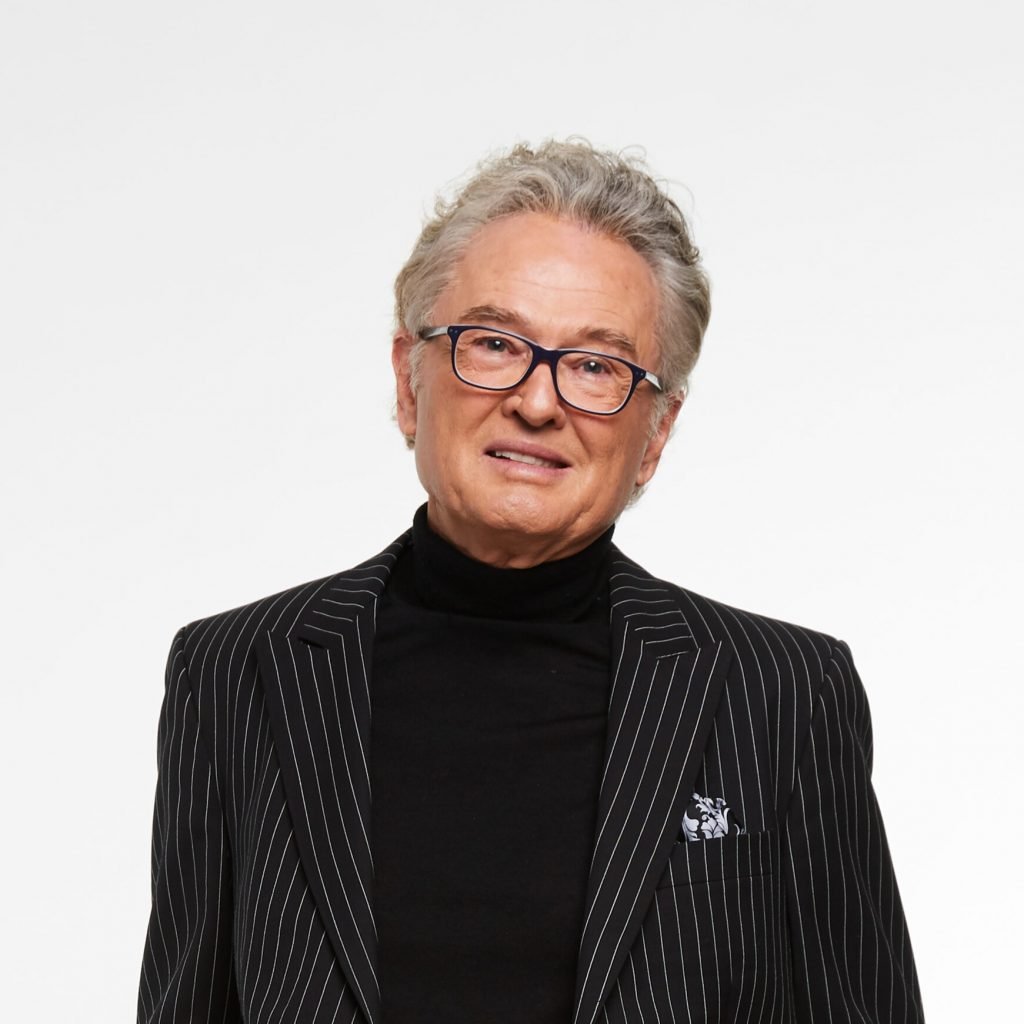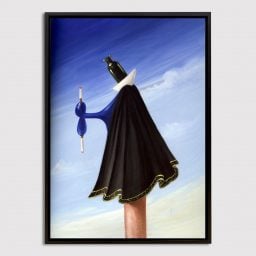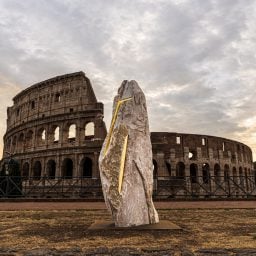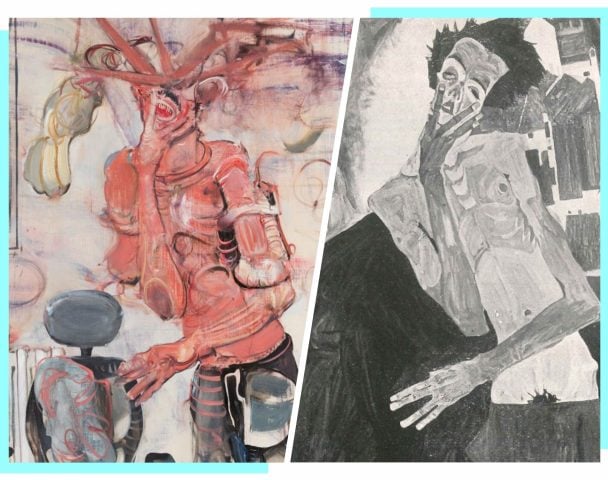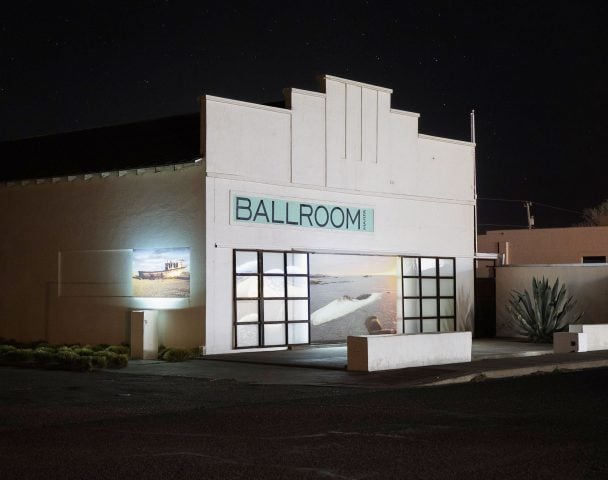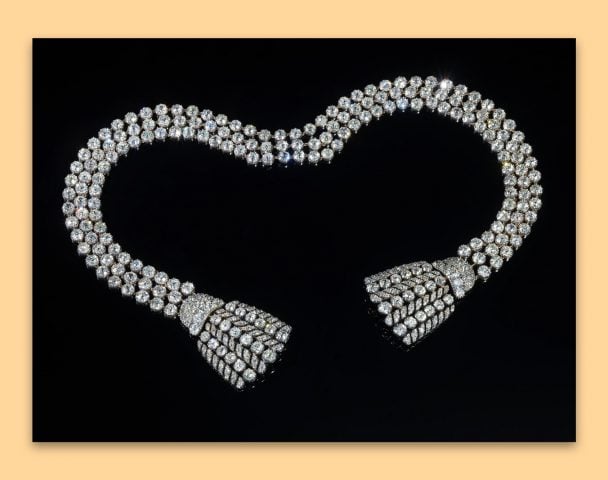Ron Hall started his career as a private art dealer in 1971, opening his first eponymous gallery space a few short years later in downtown Fort Worth, Texas. Relocating to Dallas in 1985, over the following decades Hall dealt with artworks by some of the biggest names in art history—from Claude Monet and Helen Frankenthaler, Frida Kahlo to Andy Warhol—and has become recognized as a stalwart fixture of the city’s art scene. Not one to slow down, more than 50 years on Hall is endeavoring to take advantage of the next big thing in art: the digital landscape.
In addition to his work as a dealer and gallerist, Hall has a reputation as a leading novelist, with one of his books having been adapted into a major motion picture in 2017 starring Renée Zellweger and Greg Kinnear.
We caught up with Hall to get insight into his long and storied career and the new frontiers he’s tackling in the digital art realm.

Ron Hall in his gallery (ca. 1980). Courtesy of Ron Hall Gallery, Dallas.
You opened Ron Hall Gallery in the 1970s, what are some of the starkest differences you observe in the art market today from when you started?
The internet and cell phones have been both a curse and a blessing. Before the days of email, texts, and cell phone cameras, dealers were forced to use snail mail or express mail to send transparencies which also took days to process. From the time you viewed a work of art until an out-of-town client could see an image was at least a week. The curse is that too many unauthorized dealers can blast objects all over the world like throwing mud at a wall hoping something will stick.
Throughout your 50-plus-year career in art dealing, what are some of the core tenets or principles you’ve adhered to despite changes in the art market and world?
I probably sold one hundred million dollars of art before I ever signed a contract. For most of the gray-haired dealers like me, our words and handshakes were sufficient. My words and handshake are still good.

Ron Hall with Helen Frankenthaler, April Mood (1974), which the dealer sold in 1987 and again in 2019. Courtesy of Ron Hall Gallery, Dallas.
With technology becoming an increasingly integral part of the art world, how do you maintain the sense of “personal touch” with collectors?
It’s hard to stay in touch and sadly I’ve lost that personal touch with many of my art clients and friends. The first President Bush had a policy of writing three thank-you notes every day. I received one of his hand-written notes of gratitude for my work with the homeless. The impact of that note lets me know I could do the same.
Ultimately, how have you and the gallery made the transition into a digital-based art market? Has it been a positive development?
It’s a learning curve for someone who graduated college when there were no computers. In our digital-first era, I still long for that personal touch and prefer the telephone, however, I am an optimist and see these changes as opportunities.
For example, during the pandemic in 2020, I met with artists on the other side of the world for the first time over Zoom. Establishing a presence on Artnet and putting some of the gallery’s inventory on the platform is another example of how I’m embracing the digital market. Most recently, I am very excited about my partnership with a new digital art platform, Artex.
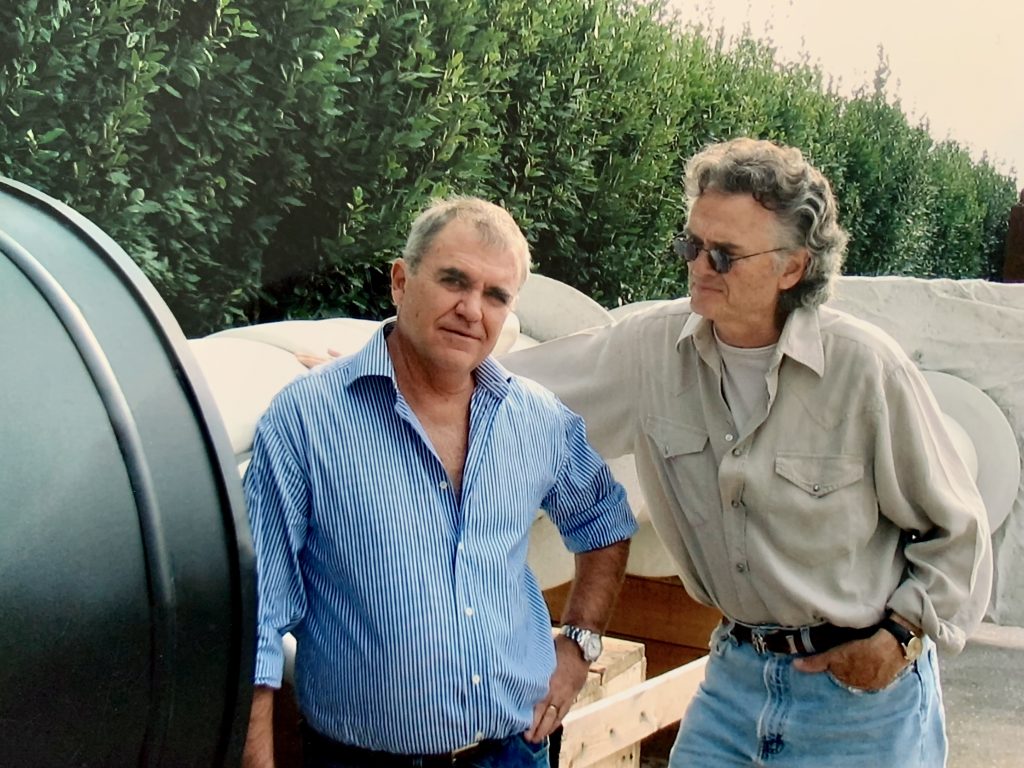
Ron Hall (right) with Julio Larraz (left). Courtesy of Ron Hall Gallery, Dallas.
Can you tell us about the new digital art platform partnership?
I was privileged to be asked by the CEO of Artex Stock Exchange Yassir Benjelloun-Touimi to be on the acquisition team. This is the most exciting development in the art world where investors of any size or net worth can own stock in priceless masterpieces. It will also allow the investors to visit the masterpiece they invest in at a museum where it will be on display.
What advice or insight would you give to an art dealer just starting out in their career?
My advice is to first work with an established dealer. Never compromise your reputation. Also, don’t get discouraged. The art game is a game played with staggering amounts of money and in which people find it easy to say no. Remember every “no” gets you closer to a “yes.”

Ron Hall with Alexander Calder, Eagle (1971). Courtesy of Ron Hall Gallery, Dallas.
Is there anything currently on the horizon—either specifically with the gallery or in the art world in general—that you are particularly looking forward to or excited about?
I’m putting the finishing touches on a manuscript, The Poopsie Chronicles: American Dreams and Fine Art Schemes. It chronicles my unbelievable 50-year career as an art dealer. After my first book, Same Kind of Different as Me (2006), became a New York Times #1 bestseller, it was made into a Paramount film by the same name. Hopefully, The Poopsie Chronicles will become a TV series where viewers get to peek behind the curtain of big art deals. I’ve changed most names to protect the guilty!

Ron Hall with his wife Beth. Courtesy of Ron Hall Gallery, Dallas.
Explore Ron Hall Gallery here.
